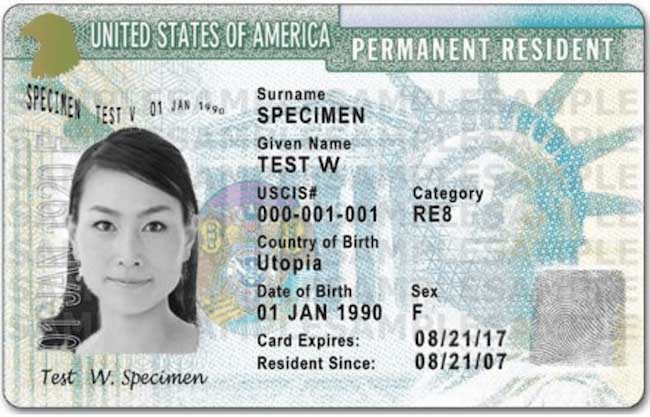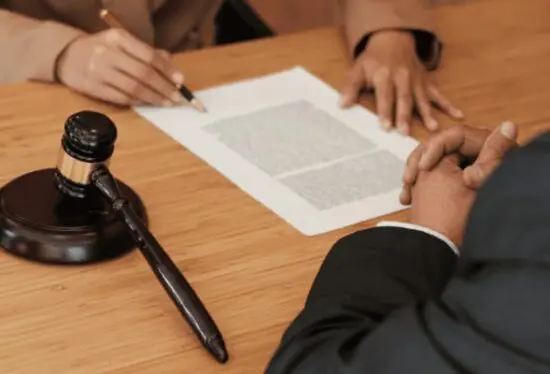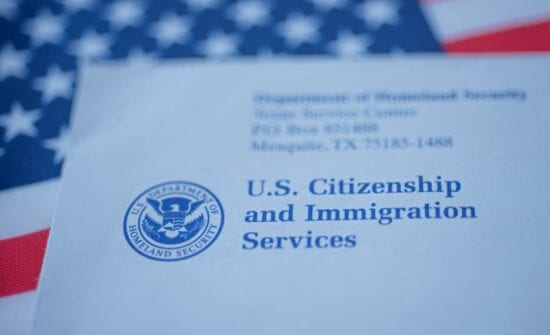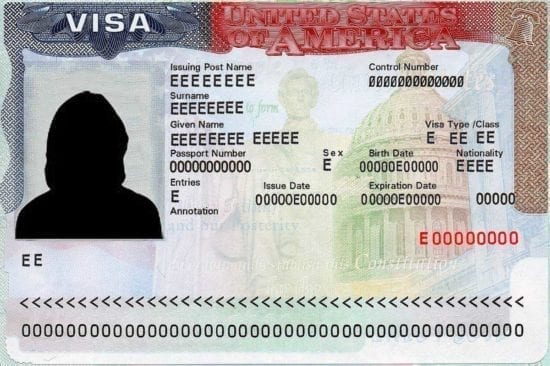What is a Green Card?
A Green Card allows people who are not U.S. citizens to live and work in the USA. It is an identity document with your name and photo. A Green Card is proof of your immigration status as a lawful permanent resident (LPR).
Green Cards are issued by the U.S. Citizenship and Immigration Services (USCIS). Most Green Cards are valid for 10 years. If you are a conditional resident, it is valid for 2 years.
A Green Card is also called a permanent resident card.

Benefits of having a Green Card
If you have permanent resident status you can:
- live and work in the USA permanently
- travel outside the USA for up to 12 months
- receive federal benefits, such as help paying for education and housing
- apply to bring your spouse and unmarried children of any age to the USA
- apply for U.S. citizenship after 5 years (or 3 years if married to a U.S. citizen)
Who can apply?
There are different ways you can become a lawful permanent resident. You can apply if you are in an eligible category:
Family members of U.S. citizens or Green Card holders
- U.S. citizens can sponsor their parents, spouse, fiance, children of any age or marital status, and brothers or sisters. Someone who is a widow(er) of a U.S. citizen can also apply.
- Green Card holders can sponsor their spouse and unmarried children for permanent residency.
- U.S. citizens and Green Card holders cannot sponsor extended family members such as cousins, aunts, uncles, and grandparents.
Certain workers
A Green Card for employment-based immigrants is available to certain workers, physicians, and investors.
Special immigrants
Religious workers, special immigrant juveniles, Afghan or Iraqi translators or interpreters who worked for the U.S. government, members of the media, and members of international organizations can apply.
Refugee and asylees
Refugees and asylees can apply for a Green Card after getting their status. Refugees must apply within 1 year of arriving. Asylees can apply at any time. But both must live in the U.S. for 1 year before their Green Card can be approved.
| As of 3/25/25, USCIS has stopped making final decisions on some Green Card applications for refugees and asylees for further vetting. It is not clear how many cases are paused, what the vetting will look like, or how long this pause will last. You can continue to file Green Card applications but should expect longer processing times. |
Victim of abuse, crime, and human trafficking
Certain victims of abuse can apply under VAWA, Special Immigrant Juvenile Status, Cuban Adjustment Act, and Haitian Refugee Immigrant Fairness Act. Victims of human trafficking and other crime victims can also apply.
Long-term residents
If you have lived in the U.S. since January 1, 1972, you can apply. This is called a Green Card through registry. This is an option even if you are undocumented or have been in the U.S. illegally.
Other nonimmigrants
Certain people can apply for a Green Card under other programs including:
- Liberian Refugee Immigration Fairness (LRIF)
- Diversity Immigrant Visa Program (Green Card lottery)
- Cuban Adjustment Act
- Dependent status under the HRIFA
- Lautenberg parolee
- Indochinese Parole Adjustment Act of 2000
- American Indian born in Canada
- Diplomat or person born in the U.S. to a foreign diplomat
Requirements
Each Green Card eligibility category has specific requirements you must meet.
If you are in the USA
An immigration officer must have inspected and admitted you upon entering the United States. Applying inside the United States is officially called adjustment of status.
If you are abroad
You must apply for an immigrant visa with your local consulate to come to the United States. This process is officially called consular processing.
| The public charge rule does not allow people who will depend on certain government assistance to get a Green Card through a family-based petition. Asylees, refugees, humanitarian parolees, TPS holders, and victims of human trafficking and crime are exempt from this rule. |
How to apply
Now that you have reviewed the different categories, here are your next steps to apply:
Step 1: Check if you are eligible to apply
- Each Green Card category has specific requirements.
Step 2: Get legal help if you can
- It is always helpful to get legal help when you are trying to adjust your immigration status. There are many organizations and lawyers who offer help for free or at a low cost.
Step 3: Find out if you need to petition for a visa
- Your family member may have to file Form I-130 and an affidavit of support with USCIS.
- Your employer may have to file Form I-140 with USCIS.
Step 4: File your application
- If you are abroad, you must apply for an immigrant visa with your local embassy to come to the United States.
- If you are in the United States, you must file Form I-485 with USCIS. Be sure to use the latest edition of the form, edition 1/20/25. If you do not use the correct form, USCIS will not accept your application.
- You must also get a medical examination and include Form I-693 with your Green Card application.
- Follow tips for filing your Green Card application.
- Pay your filing fees. They vary by age. Use the USCIS fee calculator.
- Note: you can also apply for a social security number at the same time.
Step 5: Your biometrics appointment
- Green Card applicants in the United States who are between the ages of 14 and 78 are required to give biometrics. Learn about what to expect at your appointment.
Step 6: Your Green Card interview
- Most people who apply for a Green Card in the United States will be required to interview at a local USCIS office. An immigration officer will review the answers to your application. They may also ask other questions to decide whether you are eligible for a Green Card.
- If you are abroad, you will be interviewed by a consular official at a U.S. Embassy or Consulate in your country of residence. The consular official will review your visa application and ask questions to decide whether you are eligible for an immigrant visa.
Step 7: Get a decision
- An immigration officer or consular official will make a decision in your case at the end of your interview. In some cases, the officer may ask for more evidence before they can issue a decision.
- If your application is approved, and you are in the United States, you will receive an approval notice followed by your Green Card.
- If your application is approved, and you are outside the United States, you will receive an immigrant visa in your passport to allow you to enter the U.S. After you enter and pay the Immigrant Fee, you will receive your Green Card.
- If your application or visa is denied, you will get information about whether you can appeal it.
Step 8: Obtaining your Green Card
- The wait time for a Green Card depends on the category and location you are applying from. You can search estimated processing times online.
- You can check the status of your application online or by calling the USCIS Contact Center.
Green Card interview
There are a few things you can do to prepare for the interview.
- Review your application before your interview. Prepare with an attorney, resettlement agency, family, or friend.
- Bring a copy of your application.
- Bring originals of all supporting documents including your passport, travel document, and Form I-94.
- Be prepared to answer all questions truthfully.
- For interviews at USCIS, you must bring your own interpreter if you need one and complete Form G-1256. Your interpreter must be at least 18, speak your language and English fluently, and not be involved in your case.
Information for Green Card holders
You can file a petition to remove conditions on your 2-year Green Card 90 days before it expires.
- If you have a family-based Green Card, file Form I-751. You will have to prove that you married in good faith, meaning that your marriage is genuine.
- If you have a work-based Green Card, file Form I-829. You will have to prove that you invested or are investing $1,050,000 in a new business and 10 full-time jobs.
- If you file either of these forms, your Green Card will continue to be valid for 48 months beyond the card’s expiration date.
You should renew your card six months before it expires. If your card has been lost, stolen, or damaged, you can replace your card.
File Form I-90 to renew or replace your card. You can submit your application online or via mail.
Do NOT file Form I-90 if you have a 2-year Green Card that is expiring. You must instead file a Form I-751 (see above).
If you file Form I-90 to renew an expiring or expired Green Card, your Green Card will continue to be valid for 36 months as USCIS processes your application. You can use your receipt notice and expired Green Card as temporary evidence of your lawful permanent resident status and employment authorization.
If you are waiting for a replacement Green Card, you can contact your local USCIS office to request proof of your Green Card status.
Public charge does not apply to you if you are applying to renew your Green Card. You may have to go through another public charge inadmissibility determination if you return to the U.S. after being absent for over 180 days.
You will need to show a passport or travel document when you leave the United States. You will need to show your Green Card when you return to the U.S. If you travel abroad for over one year, you must apply for a reentry permit to return to the U.S. You can file Form I-131.
Note that some countries may have travel restrictions. Learn how to plan your travel safely in our guide on travel documents and travel ban.

Know how to protect yourself from notarios and fake websites. Learn what to do if you have been a victim of fraud.
The information on this page comes from USCIS and other trusted sources. We aim to offer easy to understand information that is updated regularly. This information is not legal advice.







